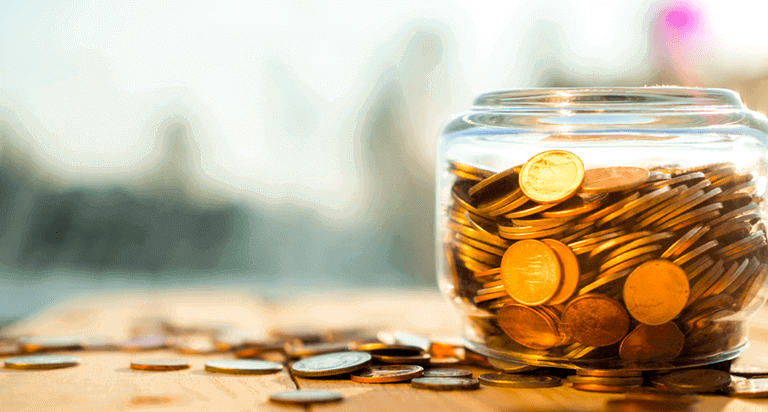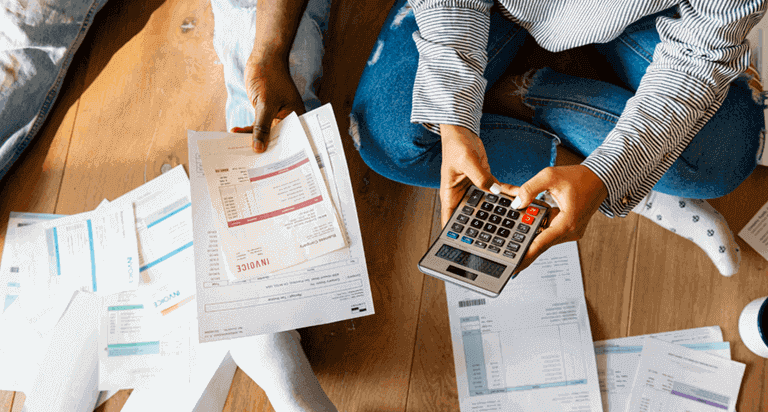How to Manage and Pay Off High-Interest Debt


Highlights:
- A high interest rate can increase the overall cost of borrowing money, and compound interest payments can significantly increase your debt over time.
- Unsecured debt such as credit cards, personal loans and private student loans tend to have the highest interest rates.
- If you’re working to pay off high-interest debt, you might consider debt consolidation or making more than the minimum monthly payments on what you owe.
High-interest debt can be expensive to carry and challenging to pay off. If you have high-interest debt, consider these strategies to better manage and pay down what you owe.
What is high-interest debt?
Although there is no strict definition for high-interest debt, many experts classify it as anything above the average interest rates for mortgages and student loans. These typically range between 2% and 7%, meaning that interest rates of 8% and above are considered high.
Generally, unsecured debt – which refers to debt that isn’t backed by an asset like a home or a car – has higher interest rates than secured debt. Mortgages, auto loans and secured credit cards are examples of secured debt. Credit cards, personal loans and private student loans tend to have the highest interest rates, while mortgages and federal student loans tend to have the lowest. Many personal loans, for example, have interest rates between 10% and 29%, and credit cards often have interest rates between 15% and 30%.
How does high-interest debt affect your finances?
If unmanaged, high-interest debt can pose significant challenges to your financial well-being. First, high interest rates usually increase the borrowing costs on your credit accounts. The higher the interest rate, the more expensive your debt is likely to be over time and the longer it may take you to pay down what you owe.
This is especially true when interest is compounded. Compound interest occurs when interest is added back to your principal balance at the end of a set cycle. Credit card interest, for example, is typically compounded daily. This means high-interest credit card debt builds quickly and can become more difficult to manage the longer it goes unpaid.
Second, unpaid high-interest debts can threaten your credit health. Your payment history is one of the largest contributing factors to your credit scores. So, if your balance is growing and you can't afford to make your payments, your credit scores may suffer. Debt can also drive up your credit utilization ratio, which represents the percentage of the available credit you’re currently using across all of your revolving accounts. Lenders typically prefer a credit utilization ratio below 30%.
Finally, because unchecked high-interest debt can grow quickly, experts often recommend paying down these debts before focusing on other financial goals. Significant high-interest debt can divert funds away from other milestones like investing, homeownership or family planning.
What are the best ways to pay off high-interest debt?
If you’re working to pay off high-interest debt, you might explore the following strategies:
- Make more than your credit card’s minimum payment. Making only the minimum payment on your outstanding credit card balances will make some progress toward reducing your overall debt, but this approach will likely cost you more interest in the long run. In fact, your account balance may remain steady or even increase, due to compounded interest. Aim to pay more than your credit card’s minimum each month to make a larger impact on what you owe.
- Use the debt avalanche repayment method. The avalanche approach is a payment method that targets high-interest debt. To start, rank your debts in order of interest rate and focus on repaying the highest-interest debt first. Then move on to your debt with the next-highest interest rate and so on — all the while continuing to make the required payments on each of your other credit accounts. This slow and steady method can help you save money in the long run by reducing the amount of interest you pay over time.
- Consider debt consolidation. If you have several sources of high-interest debt, debt consolidation may help you get a better handle on what you owe. This process allows you to combine several existing debts into a single, brand-new loan, ideally with a lower interest rate and more favorable repayment terms. Just be sure to research your options carefully and feel confident that your new loan will actually save you money in the long run. Many debt consolidation loans come with introductory fees, and opening a new credit account could have a negative impact on your credit scores.
As you work to better manage and repay your high-interest debt, remember that consistency is key. Do your best to keep up with your minimum monthly payments, pay more when you can and avoid charging new debt.
It’s a good idea to regularly check your credit reports and credit scores throughout your debt repayment process. You can receive free Equifax® credit reports with a myEquifax account. You can enroll in Equifax Core Credit™ for a free monthly Equifax credit report and a free monthly VantageScore® 3.0 credit score, based on Equifax data. A VantageScore is one of many types of credit scores.
Get your free credit score today!
We get it, credit scores are important. A monthly free credit score & Equifax credit report are available with Equifax Core CreditTM. No credit card required.



